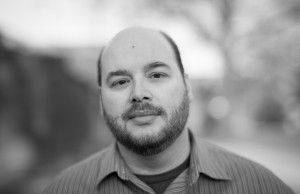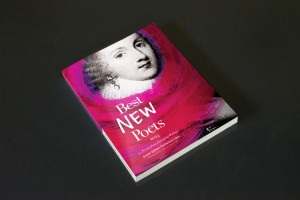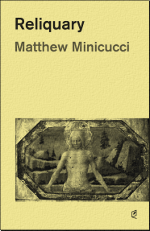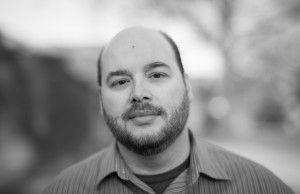A few weeks ago, I had a conversation about writers with a man whom I’d recently met. I told him I liked poets better than fiction writers. It’s a half joke because I’m a fiction writer myself, but that’s neither here nor there. Anyway, he disagreed with me, and responded by describing poets as pretentious intellectuals who elevate themselves to a plane above us normal folks (paraphrased). Over the past year, I’ve learned that this characterization is erroneous to say the least.
 Many writers are incredibly open and honest individuals, and poets are no exception. Despite what you may expect, they’ll have a conversation with you on just about any topic, even those farthest removed from poetry. I was fortunate enough to discover this firsthand by taking a poetry class with Matthew Minicucci at the U of I. Any student who studies with him will no doubt expand and refine their literary tastes, and along the way they’ll learn valuable lessons about who they are and what they’re capable of. Who better than Minicucci, then, to win an award that leads to the publication of his first book?
Many writers are incredibly open and honest individuals, and poets are no exception. Despite what you may expect, they’ll have a conversation with you on just about any topic, even those farthest removed from poetry. I was fortunate enough to discover this firsthand by taking a poetry class with Matthew Minicucci at the U of I. Any student who studies with him will no doubt expand and refine their literary tastes, and along the way they’ll learn valuable lessons about who they are and what they’re capable of. Who better than Minicucci, then, to win an award that leads to the publication of his first book?
The collection, titled Translation, was chosen by Jane Hirshfield as the winner of the 2014 Wick Poetry Prize and will see publication from Kent State University Press. The award is given to a poet who has not yet published a full collection of poetry. Minicucci described his reaction to the news as pure elation, the phone call notifying him as the best phone conversation he’s ever had. While he’s already published a chapbook, they’re generally not counted as a first book because of their brevity and shorter print run.
 “With poetry, almost universally, you have to win an award to get a first book,” Minicucci said. “There are a lot of independent presses now that are not award-related, but the old-school way to go about getting your first book of poetry is to win an award like this one.” He started writing the poems that appear in Translation four years ago, in the third year of his MFA at the University of Illinois. Since then, they’ve popped up in various literary journals such as The Literary Review, Passages North, and Verse Daily.
“With poetry, almost universally, you have to win an award to get a first book,” Minicucci said. “There are a lot of independent presses now that are not award-related, but the old-school way to go about getting your first book of poetry is to win an award like this one.” He started writing the poems that appear in Translation four years ago, in the third year of his MFA at the University of Illinois. Since then, they’ve popped up in various literary journals such as The Literary Review, Passages North, and Verse Daily.
On the experience of writing the book, he said, “Manuscript processing is slow. So if you’re writing a series of essays about a certain topic, you can’t just sit down and write ten essays. That would take you a long time, and you’d write other things about this and that, and I think it’s the same way with poems. It’s like I really want to write poems about X or Y, but I always end up doing other things around that and then come back to it, so it’s a slow process.”
 The aim of Translation, Minicucci said, is to connect classical references, to both mythological and historical figures, to his own family. “It starts from the first poem and goes to the last one, but there are a lot of classical references. In some ways it’s an intellectual book because there are things that some people might not get, but I hope it’s not too intellectual.” He wants the experience to be more emotional than intellectual, with the goal that a reader would be deeply affected through a connection with the material.
The aim of Translation, Minicucci said, is to connect classical references, to both mythological and historical figures, to his own family. “It starts from the first poem and goes to the last one, but there are a lot of classical references. In some ways it’s an intellectual book because there are things that some people might not get, but I hope it’s not too intellectual.” He wants the experience to be more emotional than intellectual, with the goal that a reader would be deeply affected through a connection with the material.
Translation will see publication in fall of 2015. Until then, you can check out his website, read his chapbook Reliquary, or keep your eyes peeled for his forthcoming appearance in Best New Poets 2014.








